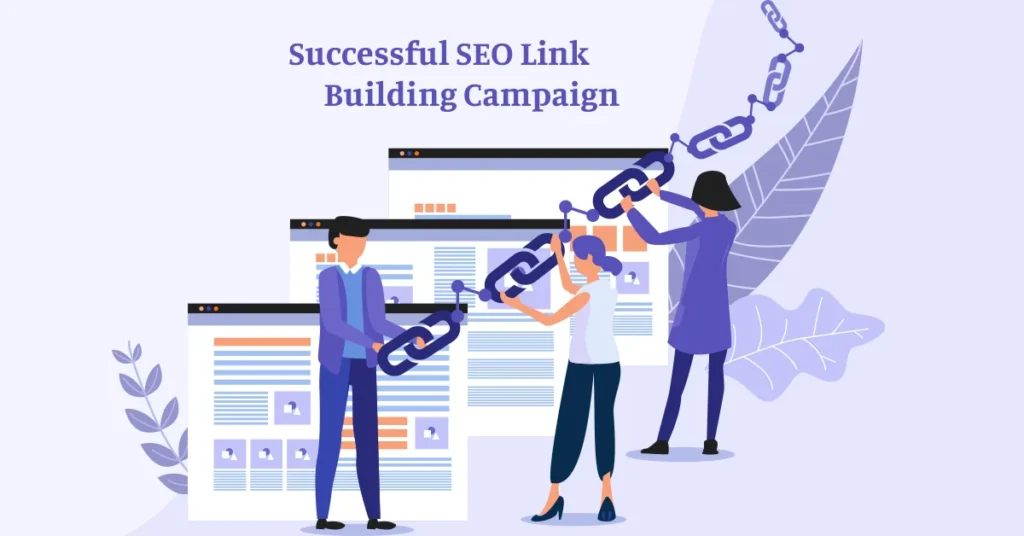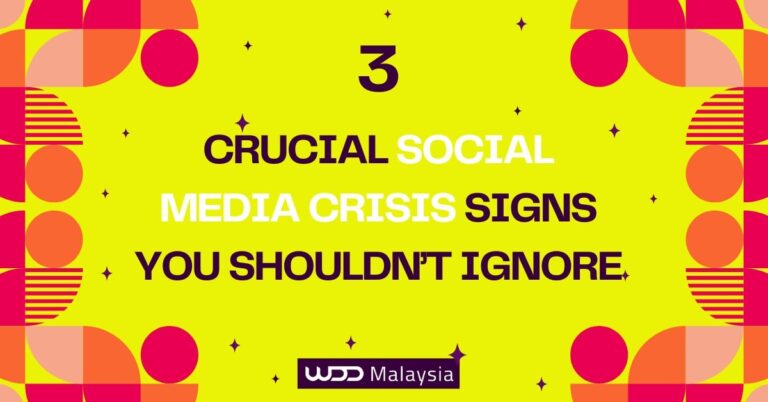
SEO link building plays a crucial role in enhancing online visibility. A successful link building case study can significantly boost search engine rankings and drive more website traffic. What are the key elements of a successful SEO link building campaign that includes a link building case study?
Understanding SEO Link Building
What is SEO Link Building?
Definition and Importance
SEO link building involves acquiring hyperlinks from other websites to your own website. Anchor text, the clickable snippet that describes the linked page, plays a crucial role in link building and SEO. Search engines use these links to crawl the web. High-quality backlinks signal to search engines that a website is credible and valuable. This credibility can improve SEO rankings.
Types of Links (Internal vs. External)
Link building includes two main types of homepage links: internal and external links. Identifying and managing broken links is crucial for optimizing web content and can aid in link building. Internal links connect pages within the same website. These links help users navigate the site and distribute page authority. External links, or backlinks, come from other websites. These links enhance a website’s authority and visibility in search engine results.
Brief History of Link Building
Link building has been a cornerstone of search engine optimization (SEO) since the early days of the internet. In the late 1990s and early 2000s, the primary focus was on quantity over quality organic search traffic. Websites engaged in tactics such as link farming and reciprocal linking to amass as many links as possible, regardless of their relevance or quality. These methods aimed to manipulate search engines into ranking their sites higher.
However, as search engines like Google evolved, they began to crack down on these manipulative tactics. The introduction of the Panda algorithm update in 2011 marked a significant shift. This update targeted low-quality content and link schemes, emphasizing the importance of high-quality, relevant links. It was a wake-up call for many in the SEO community, signaling that the era of quantity-over-quality was over.
Today, link building is a sophisticated and nuanced process. It requires a deep understanding of search engine algorithms, content marketing, and relationship-building. Victorious link building campaigns now focus on creating high-quality content that naturally attracts links. Techniques like guest posting, blogging and broken link building are employed to secure high-quality links. The emphasis is on building genuine relationships with other website owners and ensuring that links are relevant and valuable to users.
Why is Link Building Important for SEO?
Impact on Search Engine Rankings
Search engines use backlinks as a ranking factor. High-quality backlinks indicate that a website provides valuable content. Increasing the quantity and quality of links pointing back to a webpage can significantly improve SEO rankings. Websites with strong backlink profiles often outrank competitors.
Influence on Website Authority and Traffic
Backlinks contribute to a website’s authority. Authoritative websites attract more visitors. Increased traffic and more links can lead to higher engagement and conversions. A robust link building strategy can drive long-term success for a website.
Setting Up a Link Building Campaign
Setting up a link building campaign requires careful planning and execution. Here are the key steps to follow:
Step 1: Set Clear Goals and Objectives
Before diving into a link building campaign, it’s essential to set clear goals and objectives. What do you hope to achieve through link building? Are you aiming to improve your SEO rankings, drive more traffic to your site, or increase your brand’s visibility? Defining these goals will help you stay focused and measure the success of your campaign. Clear objectives provide direction and allow you to track progress effectively.
Step 2: Choose Relevant Link Building Assets
Not all content is created equal when it comes to link building. You’ll want to choose assets that are relevant to your target audience and have the potential to attract high-quality links. This could include blog posts, infographics, videos, or other types of content that are informative, entertaining, or thought-provoking. High-quality content is more likely to be shared and linked to by other websites, enhancing your link building efforts.
Step 3: Identify Link Targets and Prospects
Once you have identified your link building assets, it’s time to pinpoint potential link targets and prospects. This could include other websites, blogs, or influencers in your industry who may be interested in linking to your content. Use tools like Ahrefs or SEMrush to research potential link targets and identify opportunities for collaboration. Building a list of these prospects sets the stage for successful outreach and relationship-building.
By following these steps, you can set up a successful link building campaign that drives high-quality links and improves your site owners’ SEO rankings. Remember to stay focused on creating high-quality content and building relationships with other website owners, and avoid tactics that could be seen as spammy or manipulative.
Key Elements of a Successful Link Building Campaign

Effective link building is crucial for improving your website’s SEO ranking resource page one. Implementing various link building strategies is essential for acquiring backlinks and enhancing search engine visibility.
Quality Over Quantity Backlinks
Importance of High-Quality Backlinks
High-quality backlinks play a crucial role in SEO. Search engines prioritise links from reputable sources. These links signal trust and authority. Websites with high-quality backlinks often achieve better rankings. Low-quality links can harm a site’s reputation.
Identifying Authoritative Sources
Identifying authoritative sources requires research. Look for websites with strong domain authority. Industry leaders and well-known publications make excellent link partners. Tools like Moz and Ahrefs can help identify these sources. Focus on quality rather than quantity.
Relevance and Context of Business
Ensuring Link Relevance
Relevance is key in link building on web pages. Links should relate to the content of the page. Irrelevant links can confuse search engines. Relevant links enhance user experience. They also improve search engine rankings.
Contextual Placement of Links
Contextual placement involves embedding links within relevant content. Links should appear naturally within the text, with anchor text playing a crucial role in describing the linked page and conveying context for search engines. Avoid placing links in footers or sidebars. Contextual links provide more value. They also improve the credibility of the actual page content.
Diversity of Link Sources and Website Traffic

Various Types of Link Sources
A diverse link profile includes various types of sources. Blogs, news sites, and industry forums all contribute. Social media platforms also offer valuable links. Diversifying sources reduces dependency on any single type websites link. This approach strengthens the overall link profile.
Benefits of a Diverse Link Profile
A diverse link profile offers multiple benefits. It reduces the risk of penalties from search engines. Diverse links indicate a broad range of endorsements. This variety enhances credibility and authority. A well-rounded link profile supports long-term SEO success.
Actionable Steps for Building Quality Links

Conducting a Good Backlinks Audit Strategy
Tools for Backlink Analysis
Effective link building starts with a thorough backlink audit. Various tools assist in this process. Ahrefs, Moz, and SEMrush offer comprehensive backlink analysis. These tools identify existing backlinks and evaluate their quality. Accurate data from these backlink analytics tools guides strategic decisions.
Identifying and Disavowing Toxic Links
Toxic links harm a website’s SEO performance. Identifying these links is crucial. Use tools like Google Search Console to find harmful backlinks. Once identified, disavow these links to prevent penalties. This step protects the website’s authority and ranking.
Creating Link-Worthy Content Marketing
Types of Content that Attract Links
High-quality content attracts valuable backlinks. Several types of content prove effective. Infographics present data visually and often get shared widely. In-depth guides provide valuable information and attract links from other relevant websites. Case studies showcase expertise and draw attention from industry peers. Interactive content like quizzes also engages users and earns backlinks.
Promoting Content to Gain Backlinks
Build links through consistent efforts in link-building campaigns to gain valuable backlinks. Share content on social media platforms to reach a broader audience. Engage with industry forums and communities to spread the word. Guest blogging on reputable sites also helps in acquiring links and promoting content. Email outreach to influencers and bloggers increases the chances of earning backlinks.
Outreach and Relationship Building with Link Prospects
Identifying Potential Link Partners
Finding the right link partners enhances a link building campaign. Introducing various link building tactics is essential for identifying effective methods to generate links and improve website rankings. Start by researching industry leaders and authoritative websites. Look for sites with high domain authority and relevance to the niche. Tools like BuzzSumo and Hunter.io assist in identifying potential partners. Building a list of these prospects sets the stage for successful outreach.
Crafting Effective Outreach Emails
Outreach emails require a strategic approach. Personalise each email to show genuine interest inbound links. Clearly explain the mutual benefits of linking to the content. Keep the message concise and professional. Follow up if there is no response initially. Effective outreach fosters relationships and secures valuable backlinks.
Ethical Considerations in Link Building Strategy

Avoiding Black Hat Techniques
Risks of Black Hat SEO
Black hat SEO techniques pose significant risks. Search engines penalise websites that use unethical methods. Penalties can result in lower rankings or complete removal from major search engines’ results. Rebuilding a website’s reputation after penalties requires considerable effort. Long-term success relies on ethical practices.
Examples of Black Hat Techniques to Avoid
Several black hat techniques should be avoided. Buying links violates search engine guidelines. Using automated programs to create links also falls under black hat tactics. Cloaking involves showing different content to search engines and users. Hidden links deceive search engines and harm user experience. Avoiding these techniques ensures compliance with ethical standards.
Adhering to Search Engine Guidelines
Google's Link Schemes Guidelines
Google provides clear guidelines on link schemes. Any link intended to manipulate rankings falls under these schemes. Exchanging money for links or excessive link exchanges violate these guidelines. Creating links through automated programs also breaches Google’s rules. Adhering to these guidelines maintains a website’s integrity and ranking.
Best Practices for Ethical Link Building
Ethical link building follows best practices. Focus on creating high-quality, valuable content. Earn links naturally by providing useful information. Engage in genuine outreach to build relationships with authoritative websites. Use tools like Google Analytics to monitor link performance. Following these practices ensures sustainable and ethical SEO success.
Link Building Case Study

Overview of a Successful Campaign Helped Organic Traffic
Objectives and Goals
A victorious link building campaign sets clear objectives and goals. The primary objective often the link building process involves increasing the number of high-quality backlinks. Another goal may focus on improving search engine rankings for targeted keywords. Enhancing website authority and driving more organic traffic also serve as common objectives.
Strategies Implemented
Implementing effective strategies is crucial for a successful link building case study. One strategy involves creating high-quality, link-worthy content. This content attracts backlinks from authoritative sources. Another strategy includes conducting targeted outreach to industry influencers and bloggers. Building relationships with these individuals helps secure valuable backlinks. Utilising tools like Ahrefs and Moz aids in identifying potential link partners. Promoting content through social media and guest blogging also forms part of the strategy.
Link Building Results and Analysis
Metrics and KPIs
Analysing metrics and key performance indicators (KPIs) provides insights into the campaign’s success. Key metrics include the number of new backlinks acquired. Monitoring changes in search engine rankings for targeted keywords offers another critical metric. Website traffic data, especially organic traffic, serves as an essential KPI. Tools like Google Analytics and SEMrush help track these metrics effectively.
Lessons Learned
Every link building case study offers valuable lessons. One lesson highlights the importance of quality over quantity in backlinks. High-quality backlinks from authoritative sources yield better results. Another lesson emphasises the need for relevance and context in link placements. Relevant links enhance user experience and improve search engine rankings. Diversifying link sources proves beneficial for long-term SEO success. Ethical practices and adherence to search engine guidelines ensure sustainable results.
Final Thoughts

The blog highlighted the essential aspects of a successful SEO link building campaign. A strategic and ethical approach to link building remains crucial for long-term success. High-quality backlinks, relevance, and diversity of link sources are key elements. Implementing actionable steps such as conducting backlink audits, original research, creating link-worthy content, and effective outreach can drive significant results. Start building your successful SEO link building campaign today!




